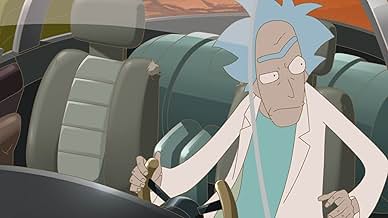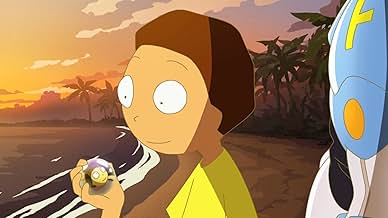An anime series in 10 episodes, based on "Rick and Morty".An anime series in 10 episodes, based on "Rick and Morty".An anime series in 10 episodes, based on "Rick and Morty".
Browse episodes
Storyline
Did you know
- TriviaEven though the show got an American release dubbed by English-speaking actors, none of the original cast from the original American Rick and Morty series would return to voice their respective roles for this project.
- ConnectionsVersion of Rick and Morty (2013)
Featured review
Not worth the time it took to watch it. Not funny in the slightest. Please remove from Max so I don't have to look at it anymore.
The makers of this clearly don't understand the humor of Rick and Morty, even if this is based off of original material. I was hoping that it was going to be an entertaining different take with some sort of interesting adventure/episode idea, but that was far from the case. It seemed so very awkward and didn't flow at all. It's almost like it was made intentionally bad, but not even in some sort of artistic way. It's just bad. Please don't make any more films again.
The makers of this clearly don't understand the humor of Rick and Morty, even if this is based off of original material. I was hoping that it was going to be an entertaining different take with some sort of interesting adventure/episode idea, but that was far from the case. It seemed so very awkward and didn't flow at all. It's almost like it was made intentionally bad, but not even in some sort of artistic way. It's just bad. Please don't make any more films again.
- How many seasons does Rick and Morty: The Anime have?Powered by Alexa
Details
- Color
- Sound mix
Contribute to this page
Suggest an edit or add missing content

Top Gap
What is the Brazilian Portuguese language plot outline for Rick and Morty: The Anime (2024)?
Answer
























